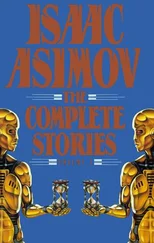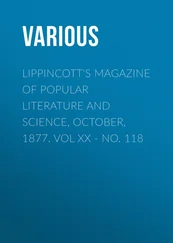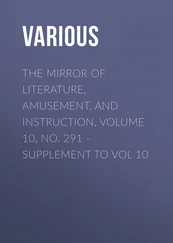Isaac Disraeli - Curiosities of Literature (Vol. 1-3)
Здесь есть возможность читать онлайн «Isaac Disraeli - Curiosities of Literature (Vol. 1-3)» — ознакомительный отрывок электронной книги совершенно бесплатно, а после прочтения отрывка купить полную версию. В некоторых случаях можно слушать аудио, скачать через торрент в формате fb2 и присутствует краткое содержание. Жанр: unrecognised, на английском языке. Описание произведения, (предисловие) а так же отзывы посетителей доступны на портале библиотеки ЛибКат.
- Название:Curiosities of Literature (Vol. 1-3)
- Автор:
- Жанр:
- Год:неизвестен
- ISBN:нет данных
- Рейтинг книги:3 / 5. Голосов: 1
-
Избранное:Добавить в избранное
- Отзывы:
-
Ваша оценка:
- 60
- 1
- 2
- 3
- 4
- 5
Curiosities of Literature (Vol. 1-3): краткое содержание, описание и аннотация
Предлагаем к чтению аннотацию, описание, краткое содержание или предисловие (зависит от того, что написал сам автор книги «Curiosities of Literature (Vol. 1-3)»). Если вы не нашли необходимую информацию о книге — напишите в комментариях, мы постараемся отыскать её.
Curiosities of Literature (Vol. 1-3) — читать онлайн ознакомительный отрывок
Ниже представлен текст книги, разбитый по страницам. Система сохранения места последней прочитанной страницы, позволяет с удобством читать онлайн бесплатно книгу «Curiosities of Literature (Vol. 1-3)», без необходимости каждый раз заново искать на чём Вы остановились. Поставьте закладку, и сможете в любой момент перейти на страницу, на которой закончили чтение.
Интервал:
Закладка:
Seigneurs Romains, j'ai entendu
Que d'un crucifix d'un pendu,
On fait un Dieu par notre empire,
Sans ce qu'on le nous daigne dire.
Roman lords, I understand
That of a crucified hanged man
They make a God in our kingdom,
Without even deigning to ask our permission.
He then orders an officer to seize on Dennis in France. When this officer arrives at Paris, the inhabitants acquaint him of the rapid and grotesque progress of this future saint:——
Sire, il preche un Dieu à Paris
Qui fait tout les mouls et les vauls.
Il va à cheval sans chevauls.
Il fait et defait tout ensemble.
Il vit, il meurt, il sue, il tremble.
Il pleure, il rit, il veille, et dort.
Il est jeune et vieux, foible et fort.
Il fait d'un coq une poulette.
Il joue des arts de roulette,
Ou je ne Sçais que ce peut être.
Sir, he preaches a God at Paris
Who has made mountain and valley.
He goes a horseback without horses.
He does and undoes at once.
He lives, he dies, he sweats, he trembles.
He weeps, he laughs, he wakes, and sleeps.
He is young and old, weak and strong.
He turns a cock into a hen.
He knows how to conjure with cup and ball,
Or I do not know who this can be.
Another of these admirers says, evidently alluding to the rite of baptism——
Sire, oyez que fait ce fol prestre:
Il prend de l'yaue en une escuele,
Et gete aux gens sur le cervele,
Et dit que partants sont sauvés!
Sir, hear what this mad priest does:
He takes water out of a ladle,
And, throwing it at people's heads,
He says that when they depart they are saved!
This piece then proceeds to entertain the spectators with the tortures of St. Dennis, and at length, when more than dead, they mercifully behead him: the Saint, after his decapitation, rises very quietly, takes his head under his arm, and walks off the stage in all the dignity of martyrdom.
It is justly observed by Bayle on these wretched representations, that while they prohibited the people from meditating on the sacred history in the book which contains it in all its purity and truth, they permitted them to see it on the theatre sullied with a thousand gross inventions, which were expressed in the most vulgar manner and in a farcical style. Warton, with his usual elegance, observes, "To those who are accustomed to contemplate the great picture of human follies which the unpolished ages of Europe hold up to our view, it will not appear surprising that the people who were forbidden to read the events of the sacred history in the Bible, in which they are faithfully and beautifully related, should at the same time be permitted to see them represented on the stage disgraced with the grossest improprieties, corrupted with inventions and additions of the most ridiculous kind, sullied with impurities, and expressed in the language and gesticulations of the lowest farce." Elsewhere he philosophically observes that, however, they had their use, "not only teaching the great truths of scripture to men who could not read the Bible, but in abolishing the barbarous attachment to military games and the bloody contentions of the tournament, which had so long prevailed as the sole species of popular amusement. Rude, and even ridiculous as they were, they softened the manners of the people, by diverting the public attention to spectacles in which the mind was concerned, and by creating a regard for other arts than those of bodily strength and savage valour."
Mysteries are to be distinguished from Moralities , and Farces , and Sotties . Moralities are dialogues where the interlocutors represented feigned or allegorical personages. Farces were more exactly what their title indicates—obscene, gross, and dissolute representations, where both the actions and words are alike reprehensible.
The Sotties were more farcical than farce, and frequently had the licentiousness of pasquinades. I shall give an ingenious specimen of one of the Moralities. This Morality is entitled, "The Condemnation of Feasts, to the Praise of Diet and Sobriety for the Benefit of the Human Body."
The perils of gormandising form the present subject. Towards the close is a trial between Feasting and Supper . They are summoned before Experience , the Lord Chief Justice! Feasting and Supper are accused of having murdered four persons by force of gorging them. Experience condemns Feasting to the gallows; and his executioner is Diet . Feasting asks for a father-confessor, and makes a public confession of so many crimes, such numerous convulsions, apoplexies, head-aches, and stomach-qualms, &c., which he has occasioned, that his executioner Diet in a rage stops his mouth, puts the cord about his neck, and strangles him. Supper is only condemned to load his hands with a certain quantity of lead, to hinder him from putting too many dishes on table: he is also bound over to remain at the distance of six hours' walking from Dinner upon pain of death. Supper felicitates himself on his escape, and swears to observe the mitigated sentence.97
The Moralities were allegorical dramas, whose tediousness seems to have delighted a barbarous people not yet accustomed to perceive that what was obvious might be omitted to great advantage: like children, everything must be told in such an age; their own unexercised imagination cannot supply anything.
Of the Farces the licentiousness is extreme, but their pleasantry and their humour are not contemptible. The "Village Lawyer," which is never exhibited on our stage without producing the broadest mirth, originates among these ancient drolleries. The humorous incident of the shepherd, who having stolen his master's sheep, is advised by his lawyer only to reply to his judge by mimicking the bleating of a sheep, and when the lawyer in return claims his fee, pays him by no other coin, is discovered in these ancient farces. Bruèys got up the ancient farce of the " Patelin " in 1702, and we borrowed it from him.
They had another species of drama still broader than Farce, and more strongly featured by the grossness, the severity, and personality of satire:—these were called Sotties , of which the following one I find in the Duke de la Vallière's "Bibliothèque du Théâtre François."98
The actors come on the stage with their fools'-caps each wanting the right ear, and begin with stringing satirical proverbs, till, after drinking freely, they discover that their fools'-caps want the right ear. They call on their old grandmother Sottie (or Folly), who advises them to take up some trade. She introduces this progeny of her fools to the World , who takes them into his service. The World tries their skill, and is much displeased with their work. The Cobbler -fool pinches his feet by making the shoes too small; the Tailor -fool hangs his coat too loose or too tight about him; the Priest -fool says his masses either too short or too tedious. They all agree that the World does not know what he wants, and must be sick, and prevail upon him to consult a physician. The World obligingly sends what is required to a Urine-doctor, who instantly pronounces that "the World is as mad as a March hare!" He comes to visit his patient, and puts a great many questions on his unhappy state. The World replies, "that what most troubles his head is the idea of a new deluge by fire, which must one day consume him to a powder;" on which the physician gives this answer:——
Et te troubles-tu pour cela?
Monde, tu ne te troubles pas
De voir ce larrons attrapars
Читать дальшеИнтервал:
Закладка:
Похожие книги на «Curiosities of Literature (Vol. 1-3)»
Представляем Вашему вниманию похожие книги на «Curiosities of Literature (Vol. 1-3)» списком для выбора. Мы отобрали схожую по названию и смыслу литературу в надежде предоставить читателям больше вариантов отыскать новые, интересные, ещё непрочитанные произведения.
Обсуждение, отзывы о книге «Curiosities of Literature (Vol. 1-3)» и просто собственные мнения читателей. Оставьте ваши комментарии, напишите, что Вы думаете о произведении, его смысле или главных героях. Укажите что конкретно понравилось, а что нет, и почему Вы так считаете.












